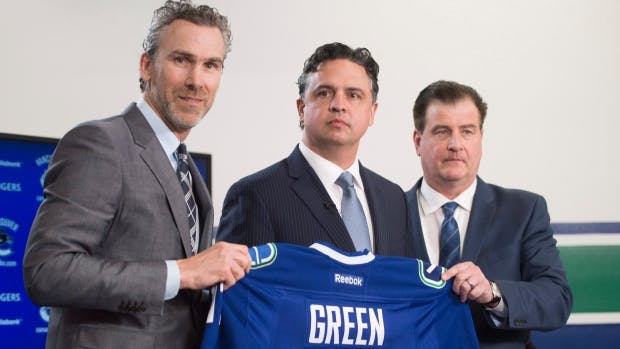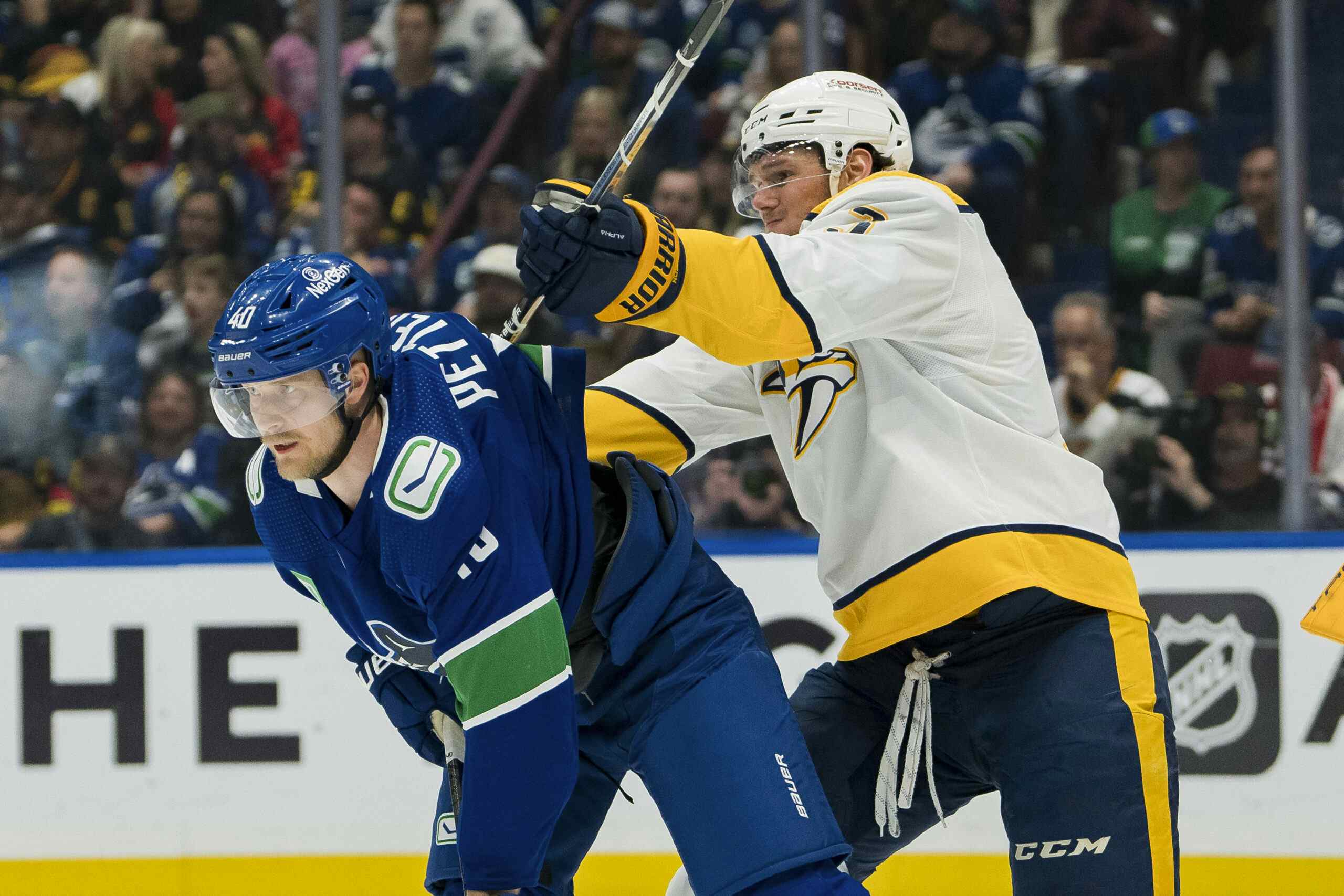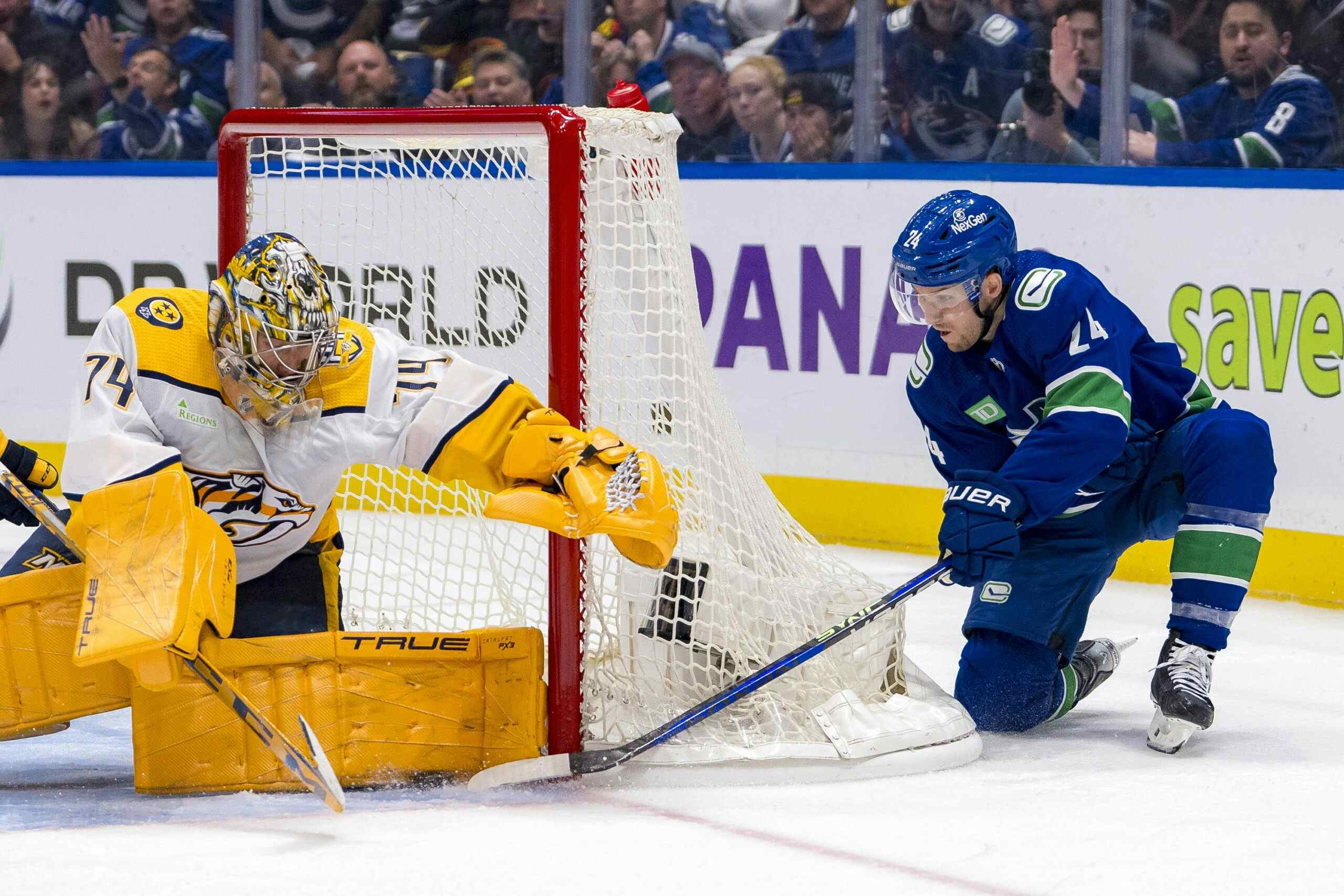Travis Green, Jim Benning, and Winning Cultures

By Taylor Perry
7 years agoSometimes, press conferences have a tendency to take on a certain identity — a thematic element, one might say. And a recurrent theme from Wednesday’s press conference introducing now former Utica Comets coach Travis Green as the Canucks new bench boss was the idea of a “winning culture.” Both Vancouver General Manager Jim Benning and Green used the term on several occasions.
These statements are nothing new to introductory press conferences, which usually strike a positive and optimistic — almost hopeful — tone. Organizations need to sell change as change for the better. After all, not many fans are going to buy tickets if the mandate from both coaching and management is to build a losing culture. Better days are ahead, and all that.
But is it all just empty rhetoric, an uncontroversial take on the direction of a franchise? No team wants to build a loser, of course. Doing so would be the precursor to financial and professional ruin. So stating an intention to create a “winning culture” certainly is not a bad idea, at least on paper. It is just a hollow declaration that is relatively short on details. Why? Because winning cultures — and its inverse, a losing culture — arguably do not exist at all.
Naturally, every team wants to win, or, at the very least, begins the season hoping to do so. It is why the vast majority of people are involved in professional sports in the first place — they want to experience success. Players, management, and coaches might have some ulterior motivations for their involvement (money, fame), but ultimately it is winning a Stanley Cup that brings them all together. It goes without saying that teams generally want to win in the long run, so organizations often define winning cultures by juxtaposing it to a losing environment.
Losing cultures are not domains where losing is the desired, or even expected outcome. Losing cultures are those where losing, mediocrity, and falling short of success have become accepted or normalized practices.
Many people, for instance, accused the Edmonton Oilers of falling into this trap over the past decade, before the arrival of Connor McDavid. For all their high draft picks and attempts to build a champion (or even a playoff contender), the Oilers consistently and spectacularly missed the mark. Players like Taylor Hall, Jordan Eberle, Ryan Nugent-Hopkins, and others were often blamed for accepting defeat, for not wanting to win badly enough. And maybe there is some truth to that. But here is another thought: what if they just weren’t good enough?
Sportsnet writer and Canucks Army alumnus Dimitri Filipovic had some interesting words to say on the subject back in January:
You can have a room full of affable players that all get along with one another, but if they’re constantly losing games and failing at their job I’d imagine the vibe in the room would turn pretty quickly. On the other hand, it’s amazing how well a group can gel and come together when things are going well for the team and they’re winning games.
Filipovic makes a fairly convincing argument, although he concedes it is a bit of a “chicken and the egg” scenario. But a losing culture, to some degree, implies agency. Accepting losing means choosing (or learning) to be at peace with it. Yet this implication is at odds with the behaviour of the vast majority of professional athletes, who are – by and large – extraordinarily competitive people.
It might be far more accurate to suggest, for instance, that while most NHL players want to win, many possess skill sets that are unfortunately incompatible with it. To once again cite the example of the 2007-16 Oilers, it was pretty unlikely that the organization approached the beginning of every training camp content with the possibility of being an NHL afterthought. Rather, the team just lacked the horses to compete in the race.
Which brings us back to the Canucks. Remember, this was a franchise that only a few short years ago was a Stanley Cup contender. Was the team blessed with a winning culture in 2011, only to have it disappear? Or did it simply have the good fortune to feature some of the top players and coaches in the game at the time? Now that the Canucks languish near the bottom of the NHL standings, is it fair to say the opposite – that Vancouver struggles because it has accepted losing as an inevitability? That might make a compelling story, but it misses the point. The Canucks lack the critical mass of talent to win, despite the desire to do so.
The Canucks of 2017 do not have a losing culture any more than the 2011 Canucks possessed a winning one. The main difference, obviously, is the vast discrepancy in talent. There is no Roberto Luongo, Ryan Kesler, or Alex Burrows, and the Sedins are nowhere close to being Art Ross champions. The current defence lacks both the quality and depth of the 2011 edition. The passage of time and continuous movement of players in and out of Vancouver ultimately took its toll. So when Jim Benning and Travis Green discuss creating a winning culture, the focus should instead be on acquiring and developing players and staff capable of winning.
A winning culture is an excellent idea, in theory. It suggests to some degree that winning and losing are a choice, or at the minimum, that choice plays a significant role in a team’s fortunes. With losing cultures, teams lose because players do not push themselves to the limit of their abilities, or they lack the desire or some combination of the two. Such analysis probably holds true for a game or two, but over the long haul is unfair to the majority of players who do consistently expound their best efforts. It also allows teams to avoid a harder truth. Namely, that the players and staff assembled are inadequate for meeting the goals of long-term success.
Recent articles from Taylor Perry





